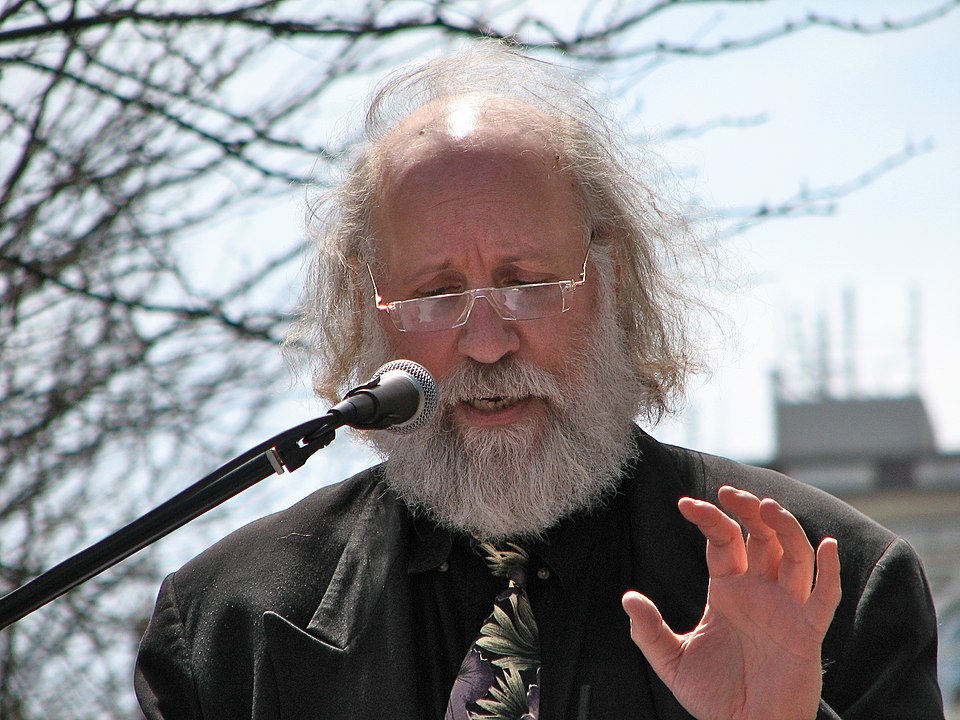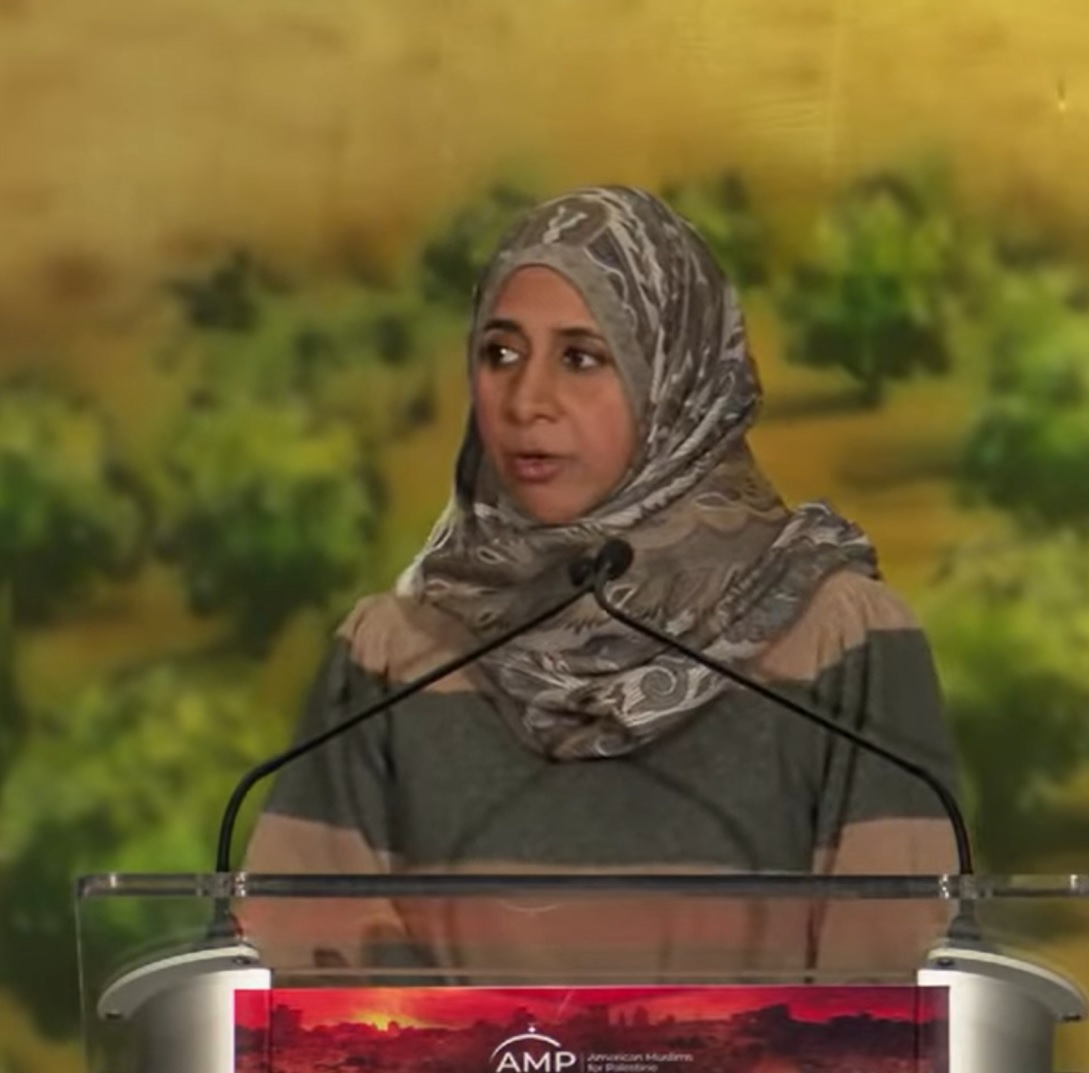An American Islamist group notorious for its efforts to demonize Israel and its supporters in the United States is struggling to rehabilitate its reputation by issuing regular statements about the evils of Jew-hatred in American society. Experts warn that the statements do not erase the organization’s long history of demonizing Israel and the Jewish community in the United States.
They’re going after low-hanging fruit.
Umar Lee
Hardly a month goes by without the Council on American-Islamic Relations (CAIR) condemning the distribution of antisemitic leaflets on college campuses or the spray painting of anti-Jewish graffiti in driveways in many locations, including Georgia, Louisiana, and Maryland.
“It’s like a politician with a troubling history of racism posting a quote from Martin Luther King on his Facebook page,” said Umar Lee, a former Salafist who has become a prominent critic of Islamism and a vocal opponent of antisemitism. “They’re going after low-hanging fruit.”
In early February, CAIR’s Georgia chapter issued a press release condemning the distribution of antisemitic fliers in metro Atlanta. After declaring that CAIR-Georgia was disgusted by the news of the pamphlets strewn on driveways in the state, Murtaza Kwhaja, executive director of the organization declared, “We stand with our brothers and sisters in the entire Jewish community against any and all forms of antisemitism.”
In mid-February, when antisemitic fliers were distributed at the University of Denver, Ismail Allison, CAIR’s national communications coordinator, applauded an investigation into the fliers, declaring, “Antisemitism and other forms of ethnic or religious hate have no place on college campuses, and the safety of students of all faiths must be ensured.”
These are odd statements coming from an organization whose national director, Nihad Awad, recently lionized Yusef al-Qaradawi, the spiritual leader of the Muslim Brotherhood, who notoriously declared that Hitler was an instrument of divine punishment against the Jews and that, hopefully, the next round of punishment against the Jews will be conducted by Muslims. “Allah willing, the next time will be at the hand of the believers,” Qaradawi said. This didn’t stop Awad from praising the antisemitic imam as the “most influential contemporary Muslim scholar” and invoking the Qur’anic blessing (“To God we belong and to Him we return”) to honor his passing.
Similar hostility toward Israel can be seen on CAIR’s website. In an undated post that obliquely references the kidnapping of Gilad Shalit in 2006, the organization uses a particularly lurid headline to describe the aftermath of an Israeli attack on Hezbollah: “Lebanese Baby’s Body Parts Hung from Trees After Attack.” The remainder of the article uses similarly lurid language to describe the death of a young girl killed in the attack.
CAIR’s animosity is not restricted to Israel, but is also directed at American Jewish organizations. In a now-notorious speech at an event organized by the American Muslims for Palestine on late 2021, Zahra Billoo, executive director of CAIR’s San Francisco Bay Area (CAIR-SFBA) affiliate, accused “Zionist organizations” of being “enemies” of American Muslims. “We need to pay attention to the Anti-Defamation League,” she said. “We need to pay attention to the Jewish Federations. We need to pay attention to the Zionist synagogues. We need to pay attention to the Hillel Chapters on our campuses.”
In response, ADL’s CEO, Jonathan Greenblatt, described Billoo’s comments as “textbook” antisemitism and “conspiracy-laden garbage attacking the mainstream US Jewish community,” adding, “It sounds like something you would expect from white supremacists.”
The Simon Wiesenthal Center, a human rights organization that advocates for the safety of Jews throughout the world, listed the speech as one of the top ten antisemitic incidents of 2021. CAIR, nonplussed, doubled down in response to the criticism, declaring Billoo had been “misquoted” by her critics.
In light of the evidence, experts and activists who deal with antisemitism don’t put much stock in CAIR’s condemnation of antisemitic fliers and graffiti.

“CAIR’s condemnation of antisemitic fliers and the like falls into an increasingly common pattern of trying to get mileage out of highly selective condemnations of far-right antisemitism that is part of widespread, increasing antisemitism worldwide, not a wholly separable political phenomenon,” Cary Nelson, professor emeritus at the University of Illinois at Urbana-Champaign, told Focus on Western Islamism (FWI). “Those groups try to use that ‘proof’ of their good will to cover their anti-Zionist antisemitism, their hostility to the Jewish state. Thus, they often will not even recognize political antisemitism on the Left.”
Nelson, author of Israel Denial: Anti-Zionism, Anti-Semitism, & The Faculty Campaign Against the Jewish State (2019), notes that CAIR has also been a vocal opponent of the antisemitism definition offered by the International Holocaust Remembrance Alliance (IHRA), which includes, among other things, denying Israel’s legitimacy as a nation state or demonizing its actions. If CAIR is serious about fighting antisemitism, Cary said, it would support the IHRA definition.
“I am concerned about any group formally opposed to IHRA. Adopting IHRA would be the single most convincing thing to do,” he said.
You can’t fight antisemitism and promote it at the same time.
Rabbi Abraham Cooper, Simon Wiesenthal Center
No one should take CAIR’s condemnations of antisemitic fliers and graffiti seriously in light of its own history of promoting hostility toward Jews, said Rabbi Abraham Cooper, associate dean and director of Global Social Action for the Simon Wiesenthal Center. CAIR is not at this time a credible partner in the fight against antisemitism, he said.
“You can’t fight antisemitism and promote it at the same time,” Cooper said.
Citing efforts by the Muslim World League and leaders in Saudi Arabia and the United Arab Emirates to confront the issue, former Salafist Umar Lee said there is a growing awareness about the problem of antisemitism in the Muslim community.
“I don’t believe CAIR is part of that awakening,” he said, adding that many local staffers who work at local CAIR chapters are vehemently opposed to antisemitism, but that leaders at CAIR National are part of the problem.
“Nihad Awad and his fellow travelers, they’re vehement antisemites and violent in their language,” Lee said, adding that in the context of the Israel-Palestinian conflict, the type of language promoted by Awad and others at CAIR incites and justifies violence against Israeli civilians.
“Just look at the terrible murder of two Jewish children by terrorists a while back,” Lee said. “In the rhetoric we’ve seen, those children are ‘occupiers,’ not civilians. Unless [CAIR leaders] take that rhetoric on, we can’t take their statements about leaflets and graffiti in the U.S. seriously.”
FWI made multiple attempts to obtain responses from officials at CAIR’s headquarters in Washington, D.C., and local chapters of the organization, but was unsuccessful.
Dexter Van Zile is managing editor of Focus on Western Islamism.
